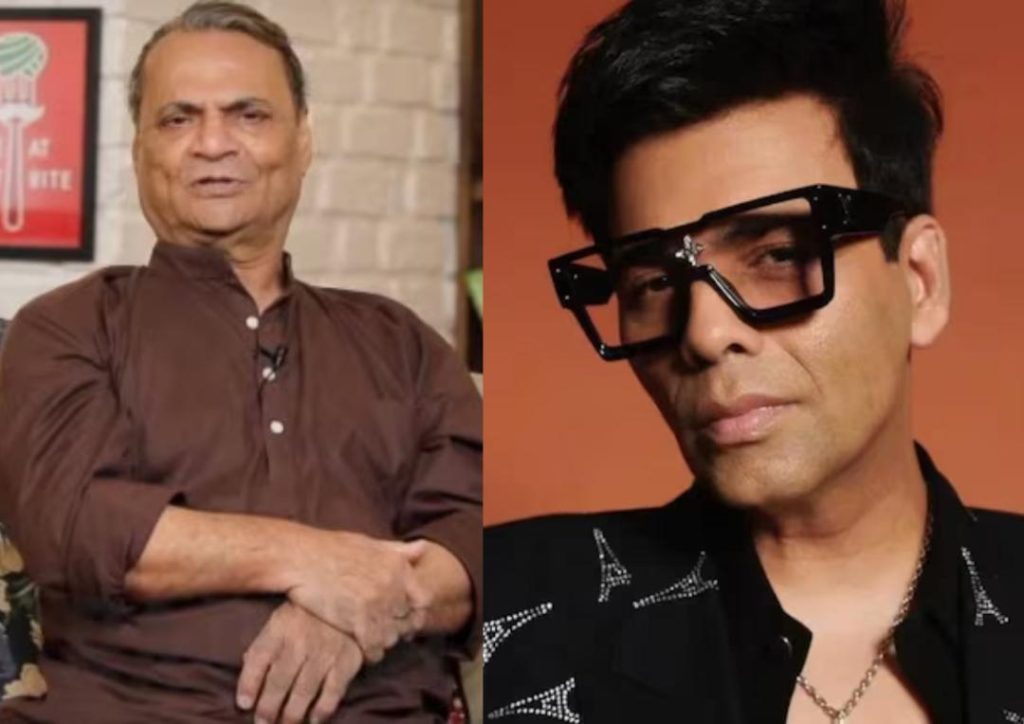
Title: I’ll Apologize: Lilliput on Insulting Karan on Feminine Gestures
Recently, veteran performer MM Faruqui, also known as Lilliput, sparked controversy when he revealed that he had “insulted” Karan Johar in the 1980s, making fun of his “feminine gestures”. The comedian, known for his witty humor, expressed regret over his actions, stating that he would apologize to Karan if they ever met. This admission has left many wondering about the importance of apologizing for past mistakes and the impact of hurtful words on others.
Lilliput’s remarks were made in an interview where he recalled the incident, stating, “Karan had a slightly feminine gesture, so I thought, ‘He’s a kid, if we tell him now, maybe he’ll adjust it'”. He went on to add, “It hurt him, and I didn’t know that…If we meet sometime, I’ll apologize”. These words have not only brought back memories for Karan Johar but have also sparked a conversation about the power of words and the importance of apologizing for past mistakes.
In an era where social media is filled with hurtful comments and trolls, Lilliput’s admission serves as a reminder of the impact that our words can have on others. As a society, we often prioritize our own feelings and opinions over those of others, forgetting that our words can be hurtful and damaging. Lilliput’s apology, although belated, is a step in the right direction, demonstrating that even the most powerful and influential among us can acknowledge our mistakes and take responsibility for our actions.
Karan Johar, a renowned film director, producer, and screenwriter, has built a successful career in the Bollywood industry. He is known for his work on films such as “Kuch Kuch Hota Hai”, “Kal Ho Naa Ho”, and “My Name is Khan”. Despite his success, Karan Johar has faced his share of criticism and controversy, including rumors of his personal life and his perceived influence in the industry. However, his response to Lilliput’s apology has been characteristic of his humility and graciousness, stating, “I don’t think anyone can hurt me. I’ve been in this industry for 25 years, and I’ve seen it all”.
Lilliput’s apology has also sparked a conversation about the importance of self-reflection and acknowledging our own biases and prejudices. In an industry where gender stereotypes and biases are often perpetuated, Lilliput’s apology serves as a reminder that even the most well-intentioned among us can hold biases that we are not aware of. His admission is a call to action, encouraging us to reflect on our own biases and prejudices and to work towards creating a more inclusive and accepting environment.
In addition to the importance of apologizing for past mistakes, Lilliput’s apology also highlights the power of forgiveness and the impact it can have on our lives. Karan Johar’s response to Lilliput’s apology demonstrates that forgiveness is not only a powerful tool for healing but also an important part of moving forward. By choosing to forgive and move on, Karan Johar is setting an example for others to follow, demonstrating that even in the face of hurt and betrayal, forgiveness can be a powerful tool for healing and growth.
As we reflect on Lilliput’s apology and Karan Johar’s response, it is clear that the power of words is not to be underestimated. Our words have the power to hurt, to heal, and to inspire. As a society, we must prioritize the impact of our words on others, taking responsibility for our actions and acknowledging our mistakes. Lilliput’s apology serves as a reminder that even the most powerful and influential among us can acknowledge our mistakes and take responsibility for our actions.
In conclusion, Lilliput’s apology to Karan Johar for making fun of his “feminine gestures” is a powerful reminder of the importance of apologizing for past mistakes and the impact of hurtful words on others. As we move forward, let us prioritize the power of words, acknowledging our own biases and prejudices and working towards creating a more inclusive and accepting environment. By doing so, we can create a society where everyone feels valued, respected, and heard.






